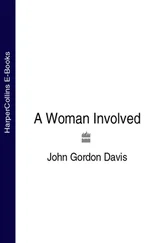The sergeant said: ‘Yes, I was confident, Your Worship.’
Patti Gandhi cried: ‘So confident that you were prejudiced !’
The sergeant said uncomfortably: ‘No, I was not prejudiced.’
‘ No ? You weren’t convinced you were right? Then why did you smash a citizen’s door down?’
The sergeant said gruffly: ‘Yes, I was convinced.’
‘Aha! You were convinced you’d find evidence of immorality within. And therefore, Sergeant, your expert, five-year-experienced eye was prejudiced by your conviction that you would find steamy evidence of immorality.’
‘I was not prejudiced …’
Patti started to argue but the magistrate said, ‘You’ve made your point, Miss Gandhi, now please proceed to your next question.’
Patti Gandhi said sweetly: ‘So, therefore, Sergeant, it is very appropriate – very relevant – to ask you what your definition of immorality is. To define to us exactly what you were looking for.’
‘Objection, Your Worship,’ the prosecutor said. ‘Argumentative.’
The magistrate sighed. ‘No, Mr Prosecutor, Miss Gandhi has squeezed the question in legitimately. Her question is: What was the witness looking for and what was going on in his mind? That’s relevant.’
Patti turned back to the witness. ‘So, what is immorality?’
‘Sexual intercourse.’
Patti’s finger shot up. ‘Ah ! So sexual intercourse is immoral!’ She turned to the magistrate. ‘And he was so convinced it was taking place that he smashed a door down! If that isn’t a prejudiced witness, what is, Your Worship?’
The magistrate managed a smile. ‘Continue, Miss Gandhi.’
Patti glared at the witness. ‘And what exactly did your prejudiced eyes see, Sergeant? First you saw my friend in his underpants, looking frightened, agitated.’
‘Correct.’
‘Wouldn’t you expect anybody to be frightened if someone breaks into his house at midnight? And then you looked into the bedroom. But you did not see me in there, did you?’
‘No, you were in the bathroom.’
‘Correct. You opened the bathroom door – which is down the passage – and saw me there. With a towel wrapped around my chest?’
‘Correct.’
‘Looking frightened, too, you said. Wouldn’t you expect any woman to be frightened – horrified – when a strange, nasty man bursts in when she’s naked, about to shower.’
‘You weren’t about to shower,’ the sergeant said wearily.
‘How do you know?’
The sergeant muttered: ‘It’s obvious.’
‘Oh, obvious? And you say you weren’t prejudiced? But the bathroom is an obvious place to shower? And isn’t naked the obvious way to shower?’
The sergeant sighed. ‘Of course, but …’
‘Thank you. And on the bathroom floor were my clothes, you said. Isn’t that the obvious place you’d expect to find them, as I was showering in somebody else’s house?’
‘No, you could have undressed in the bedroom, grabbed your clothes and run into the bathroom when you heard me coming.’
‘I see … But did you see me do that?’
‘No, I told you what I saw.’
‘But you presume I did that?’
‘That’s for the magistrate to decide, not me,’ Sergeant van Rensburg muttered.
‘Thank goodness for that! Now, turning to the bedroom: you say the bed was unmade, as if somebody had recently slept in it? Did my absent co-accused have a servant who makes his bed?’
‘I don’t know.’
‘So the bed could have been unmade like that for days. So why do you say it had been “recently” slept in?’
‘Because,’ the sergeant said triumphantly, ‘the bed was warm .’
‘Ah, yes, so you said. Warm? You used a thermometer, of course?’
‘No,’ the sergeant sighed, ‘I felt it with my hand.’
‘Oh, yes, your hand. I suppose your five years’ experience in vice has made your hand a reliable thermometer?’
‘The bed was warm , Your Worship,’ the sergeant insisted.
‘How warm, Sergeant?’
‘It was warm – it was obvious people had been lying in it.’
‘ Obvious ? People? Not just one person? It was obvious the temperature was caused by two or more human beings?’
The sergeant sighed. ‘The point is it was warm. And there were two people in the apartment.’
‘And two people will always jump into the same bed? Two people couldn’t possibly be in the presence of one bed without feeling irresistibly compelled to jump into it? Is that your experience?’
The sergeant sighed again. ‘I’m just telling the magistrate what I saw.’
‘And felt. With your experienced hand. So tell me, what was the temperature of the bed – in Fahrenheit. Or Centigrade.’
The sergeant muttered: ‘I don’t know. Just warm.’
‘I see. Hold your hand up in the air, please, Sergeant.’
The sergeant did so, grimly.
‘What is the temperature of the air in this courtroom?’
‘I don’t know, Your Worship,’ he sighed. ‘It’s normal.’
‘Normal for what? For Africa in general? Johannesburg in particular, six thousand feet above sea level? What is normal ?’
‘I don’t know.’
‘You don’t know! And what is the normal temperature of a bed that has just been vacated?’
‘I don’t know.’
In those days Drum had its premises in a rundown building called Samkay House, Troy Street, in downtown Johannesburg. It was a small outfit, with sales of only 80,000 copies per month, but over a million blacks read it. There was also a Rhodesia Drum and a Kenya Drum and the publisher intended to publish from Cape to Cairo in the fullness of time. Drum was also strong on black culture, all aspects of black urban life: Sophiatown had been the most dramatic manifestation of that urbanization, but Sophiatown had been razed to the ground and now Soweto was Drum’s new focus. Drum’s treatment was very American in style, heavy on American movies, cars, clothes, music and rising stars like Martin Luther King, Malcolm X. In those days the ANC and PAC imagined that the repressions of apartheid would make their causes bloom into open rebellion, but the government clampdown on all dissent in pursuit of its dream state was so effective that Drum was the only mouthpiece the blacks had, and they loved it. In short, Drum owed its success to apartheid.
But Drum was careful. The basic, day-to-day enemy was the Police Censorship Department, the Subversive Publications Act as supported by the Suppression of Communism Act, but the editor managed to steer a precarious course through this maze of legislation. Nonetheless, every Drum writer – and many from the other newspapers – had received an ‘invitation to tea’ with BOSS, the Bureau of State Security, a branch of the South African Police. It was the week after Mahoney’s story of Patti Gandhi’s acquittal was published that he received his invitation.
BOSS had its offices on the eleventh floor of Marshall Square Police Station, in the heart of Johannesburg. You were escorted into the building, and you rode up in a special elevator with only one button. You passed through a security gate, walked down a row of offices to the big one, and there was Colonel Krombrink, his hand extended and a smile all over his Afrikaner face.
‘Mr Mahoney, thank you for coming to see us …’
‘Us’ included a young man in plain clothes at the window, smiling faintly, holding a fat file conspicuously marked Luke Mahoney , which he now carefully placed before Colonel Krombrink. Tea was served on a tray by a black constable, with a saucer of Marie biscuits.
Читать дальше












